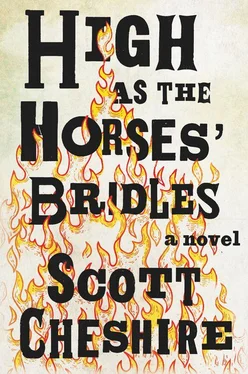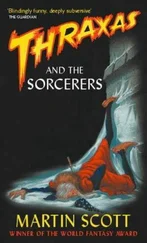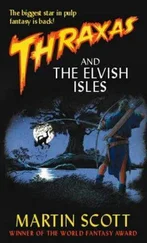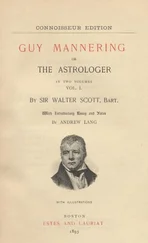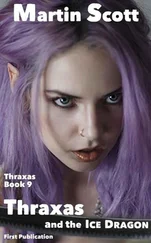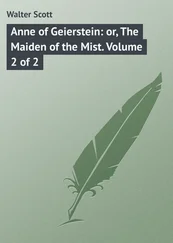She mussed Issy’s hair. “No trouble at all. How about later today? We’ll walk over and pick you up.”
This amazed me. Confused me. How did she know where he lived? She somehow knew, and I didn’t? What else did she know? She knew of whole blocks and neighborhoods, I soon found out, ones I’d never been to or heard of before. So we walked to Issy’s house that afternoon, waved at his mother actually hiding in the window, who never did come out to meet us, and Issy came over. Not all mothers were the same, I knew this now. She stayed at that window and spied on us like we were stealing away her child. I saw scabs and cuts on her face. The house itself was a shambles. The front yard covered in large plastic toys, neon Big Wheels, basketballs, and broken bike parts, all at the feet of a powder-blue Blessed Mother Mary statue. As far as I knew, Issy had no brothers or sisters, and so we figured they weren’t the only ones who lived there. Issy later told me the toys belonged to the other kids his father sometimes brought over, and that his mother always refused to talk to those children or cook them food or even come out of her room when they were in the house.
That day we walked back to my house, and my mother, I see now, was asking all sorts of questions to better understand Issy’s situation. How long had he lived there? Did he like his block? Did he have lots of friends in the neighborhood? Did his mom have a job? And what was his favorite thing to eat, because maybe she could make it for him.
He and I went straight to the backyard, which wasn’t so big a yard compared to some, but Issy just could not get over how huge. He said their landlord wouldn’t let them use their backyard. We sat at the wooden table for a while and talked about Havi, probably because we had that in common, and about how he didn’t call Issy anymore and ignored him at church. I remember more than anything else a small mouse in the grass, and Issy pointing at it. It was a dead mouse, curled up in the grass as if he’d been cupped in a palm and set there to sleep. Issy got up from the table, crouched down beside the mouse, and gently petted his finger along its rounded back. He sat there for a minute or so, and then looked up at me, his face like he wanted to say something, like he was disappointed. I could see he was about to cry, and he wiped his eyes and stared at me. Almost like he was daring me to laugh at him. I didn’t.
I stood over Issy and said, “We have mice.” I pointed at our house.
He smiled a big smile, and dug at the grass and dirt with his fingers and scooped out a hole in the earth and placed the mouse in it, moved it with a stick. We scoured the yard for what seemed like all day long, looking for the perfect rock to cover the hole. The mouse and the hole and the rock put us in the same world somehow, away from Havi, and all that came before. We never mentioned Havi again, and I realized I’d always wanted a brother.
It seems to me that Issy was somehow aware of death, or maybe just of sadness or maybe the harder parts of life, in way I wasn’t, not yet. His life was more precarious than mine, less secure. My father was unorthodox, yes, but he was there. My mother didn’t have marks and cuts on her face. This made me want to be a big brother to Issy. I probably never said it to myself or out loud, but that’s what it was. And here he was a year older than me. But it wasn’t just about wanting to protect him, if I could. There was something in him I recognized, something in myself, but also I was jealous of him. The Laudermilk house was a more secure place, absolutely, when compared with Issy’s. But compared with the average family on our block, we were freaks. Daily life in the Laudermilk home was tricky — it was slippery — and even though I was dealing, always dealing with it, because I had to, it made me anxious. And here was Issy living a life lots more tricky then mine, in everyday ways, and yet he never once seemed anxious. If you could only have seen his face. He was untouched by it, or maybe he was just resigned and I’m romanticizing it all, or maybe he just never knew anything else. I wanted his peaceful way.
He came back that week, almost every day, and pretty much every weekday afternoon for the rest of the summer. Sometimes Saturdays. He occasionally joined us at church. One day, in our backyard, we talked about the girl in the yellow dress. We guessed at her name, and Issy decided to call her Ariel, after Princess Ariel from one of our favorite cartoons. How do I remember this? Thundarr the Barbarian . We loved that cartoon! We watched it, completely rapt, together in the living room, sprawled out on the floor in front of the TV, eating instant Jiffy muffins. I even remember the show’s intro. A runaway cartoon planet flies by the earth and causes a global catastrophe in the future year of “1994.” Just fourteen years away, at the time … Did I ever consider the coincidence, then? I don’t think so. Six years off from my own “prediction.” And in the year 3994, two thousand years later, Thundarr is born to save mankind. I even married Issy and Ariel, one day, the girl in the yellow dress played by a thin maple in my backyard.
Issy said, “You can do it because you’re a priest.”
Later that summer, Issy said we should go meet some girls. What girls? He knew girls? There were two girls that wanted to talk to us, he said. What do you talk about with girls? We spent hours, all morning long, learning how to use hair sprays and gels and trying to look as old as possible.
“You’re supposed to use a hair dryer,” he said. We were in the upstairs bathroom.
I looked in the closet where Mom kept the towels and the sheets and what looked like a tackle box filled with creams and makeup. I found the hair dryer.
“Here.” He took it from me and plugged it in, and we blew our slick hair into deliberate cowlicks over our foreheads and sprayed.
We walked to Issy’s school, and we walked into the school yard where the two girls should’ve been waiting for us. But they weren’t. We sat on the monkey bars, and talked, and we joked, doing Star Wars impressions, and before long we forgot about the girls.
And then they were calling out for Issy.
“Issy! Issy!”
We looked all over, but we couldn’t find them.
“Up here!”
We looked up and saw them standing on the roof of the school.
Issy said, “How’d you get up there?”
“The fence,” one girl said. And she pointed at the fence, and how it extended alongside the school, up past a portico roof. “Climb from the roof,” she said. “You afraid?”
Issy looked at me, and we read each other’s thoughts: We must do this. Everything depends on us doing this. We ran for the fence and climbed like two chimps escaping from a cage, and found ourselves on the portico. We looked up and they were there, two Spanish-looking girls who knew Issy’s name.
“Whas you name?” one of them said.
Me? I looked at Issy. I said, “Me?” And I looked back at them, at the hems of their skirts at their knees, and how did girls walk around in skirts? Climbing fences? In skirts? I was getting lost in thoughts of fences and skirts, and then both girls just started laughing. They said, “You can’t get up here? We could do it!”
They disappeared from our view.
We froze. And then we scrambled.
“Here!” Issy said, “Look, a ladder on the wall.” He was laughing, like how come we didn’t see it? A black metal ladder bolted to the brick. We climbed it, and the upper edge of the building gave way to a view of the flat barren roof: broken soda bottles, cigarettes in piles, five-gallon cans filled with I don’t know what like a janitor forgot they were there, a jellyfish pile of soaking-wet condoms, titillating and repulsive, and the girls. They were sitting on a brick rise that housed a large exhaust fan.
Читать дальше
